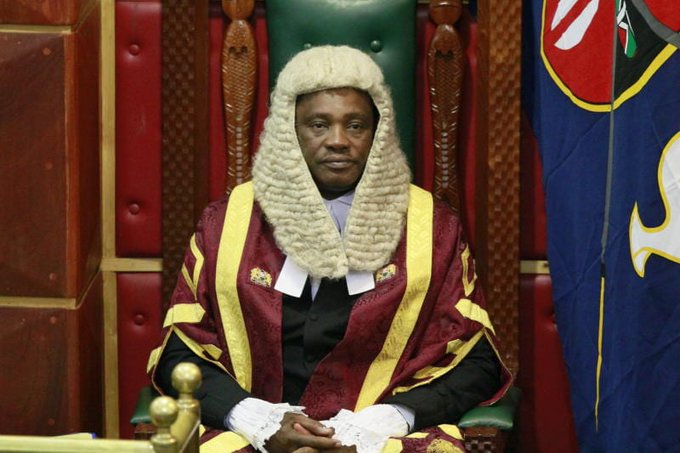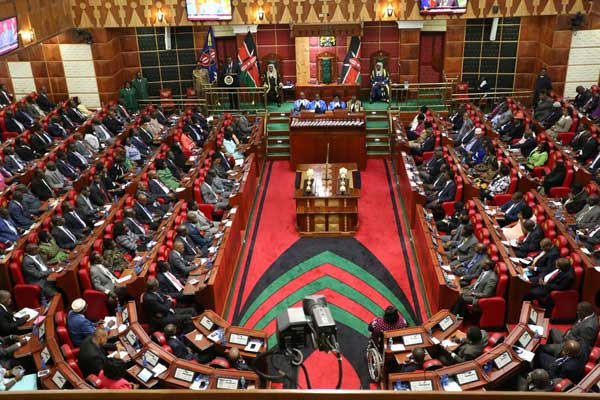National Assembly Speaker Justin Muturi is seeking the intervention of the Building Bridges Initiative (BBI) to save the Parliament from dissolution.
Reacting to a letter by Chief Justice David Maraga advising President Uhuru Kenyatta to dissolve Parliament over its inability to pass the two-thirds gender rule, the Speaker said various electoral laws may need to be amended.
“Given the current efforts and initiatives to amend the Constitution that are currently underway such as the Building Bridges Initiative (BBI), the issue on two-thirds gender rule can be subjected to a referendum in the event the same happens,” he said.
“Owing to the cost implications of implementing the two-thirds gender rule through other mechanisms such as nomination and topping up, it is prudent if the matter were to be subjected to the people once more for a re-evaluation or to propose ways of achieving two-thirds gender rule.”
While saying that the House has been turned into a punching bag, the Speaker absolved Parliament from blame saying it was the job of the State to enact legislation.
“To begin, it is the State that is empowered to ensure that two-thirds of members of all elective and appointive positions are not of the same gender…,” he said.
“An understanding of the entire law-making process indicates that it is not solely upon Parliament to have a law enacted. Bills may originate from anywhere including from the public through petitions for presentation in Parliament, subsequently processed through the House and then finally presented to the President for assent.”
The Speaker said that leaving the issue of gender parity to Parliament would not be the “direct expression of the will of the people” and would also mean a higher number of legislators.
- Uhuru Takes A Swipe At Ruto, Asks Him To Take It Slow Or Loose
- Shocking Decision Oscar Sudi Made To Secure His Freedom
- Kenyan tourist camp that blocked wildebeest migration closed indefinitely
- DCI Agents Nab Notorious Fake Lawyer Behind Forged Court Orders
“At present, if we were to nominate women legislators to comply with the two-thirds gender principle in Parliament, we would have to nominate up to 100 women legislators,” said Mr. Muturi.
“Given that legislators decide through voting in Parliament, this would in essence mean that there are an additional 100 votes of nominated women legislators, yet these legislators are not a direct expression of the will of the people.”
He also noted that the by-elections to be held if Parliament was dissolved would also not guarantee gender parity.
“In fact, dissolution of Parliament will necessitate a by-election in all constituencies, nearly akin to a General Election… Even more fundamentally, there is no particular guarantee that were by-elections to be conducted throughout the country under the extant First Past the Post electoral system, the obtaining electoral results would be gender compliant.”

